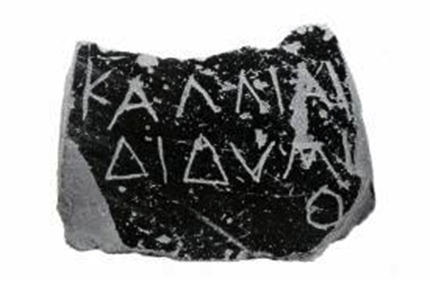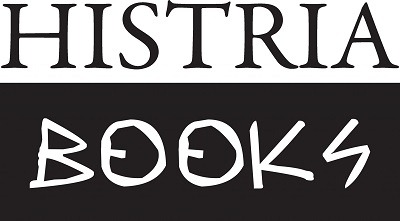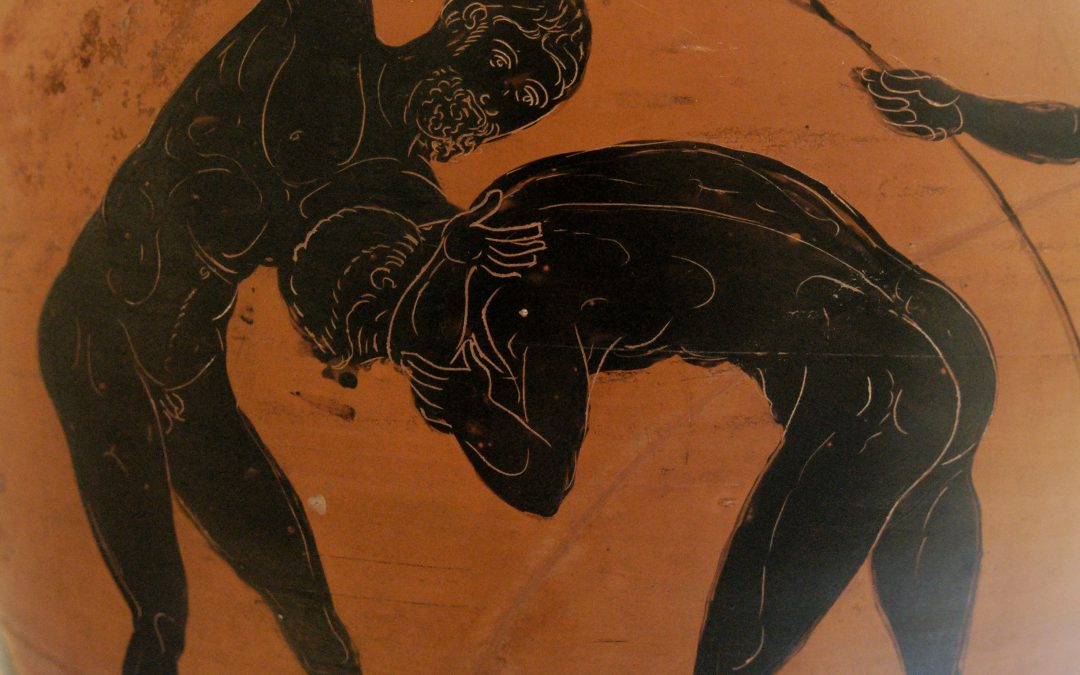Pankration, meaning ‘all force’ or ‘all powers’, was a combat sport combining wrestling and boxing which was introduced to the Olympics. In this form of fighting, everything except biting, gouging and attacking the genitals was permitted. However, because the combatants did not bind their hands with leather straps (as did the boxers), the risk of sustaining wounds (particularly cuts to the facer) was significantly less. Nevertheless, the pankration was a demanding and dangerous event asking much of its practitioners in the way of speed, strength and endurance.
In the same way that wrestling had two forms, so too did the pankration (upright and ground wrestling). Indeed, these ran along the same lines as the wrestling in that, in the upright form, a pankratiast was declared the victor winner when their opponent was forced to touch the ground three times. In the ground wrestling form, a pankratiast was declared the victor when their opponent was either forced to submit or lost consciousness. Of course, as with boxing and wrestling, the pankration was attended by referees armed with switches to chastise those fighters who broke the rules or attempted to fight beyond the pit.
Not surprisingly, pankration was wildly popular with spectators as it was regarded as the most comprehensive test of combat skills in the Greek sporting world. Indeed, one can speculate that the pankration combined all of the necessary hand to hand combat skills needed for the soldiery of the ancient Greek world.
In modern times, the sport has fallen into disuse but there is now a movement to revive the sport with interest growing rapidly among mixed martial arts (MMA) enthusiasts. However, while there are many who claim that the contemporary combat sport of MMA descends directly from the pankration, this claim cannot be support by the historical evidence, particularly in light of the influence of martial arts such as Kodokan Judo and Gracie Jui-jitsu, which do not share heritage with the games of ancient Greece.
Kallias
Kallias of Athens, the son of Didymas, was a famous and successful pankratiast. Winning the Olympic games in 472 BC, he went on to win at Pythis twice, at Isthmia five times, at Nemea four times The Athenian pankratiast Kallias, son of Didymias, won a victory at the Olympic games in 472 BC. He also won twice at the Pythian games, five times at the Isthmian games, four times at the Nemean and once at the great Panathenaia. Having won each of the four great games, he became the first Athenian periodos-victor.
So great were his achievements that, after his victory at Olympia, the sculptor Mikon was commissioned to erect a statue in his honour at Olympia. While the sculpture itself has been worn away by the years, the inscription at its base can still be read.



Appreciate this post. Let me try it out.
I couldn’t refrain from commenting. Exceptionally well written!
You really make it seem really easy with your presentation but I find this topic
to be really something which I feel I might by no means understand.
It kind of feels too complex and extremely huge for me.
I’m looking forward in your next submit, I’ll try to get the hold of it!
What’s up, after reading this amazing piece of writing i
am also glad to share my know-how here with friends.
Thanks for your personal marvelous posting!
I certainly enjoyed reading it, you can be a great author.
I will always bookmark your blog and will eventually come back in the future.
I want to encourage yourself to continue your great posts, have a nice afternoon!
Have you ever considered writing an e-book or guest authoring on other sites?
I have a blog based on the same ideas you discuss and would really like to have you share some stories/information. I know my audience would value your work.
If you are even remotely interested, feel free to send me an email.
My brother recommended I may like this blog. He was totally right.
This post actually made my day. You cann’t consider
simply how a lot time I had spent for this information! Thanks!
We absolutely love your blog and find many of your post’s to
be what precisely I’m looking for. can you offer guest writers to write content available for you?
I wouldn’t mind publishing a post or elaborating on some of the subjects you
write with regards to here. Again, awesome blog!
Its not my first time to pay a quick visit this web page, i am visiting this web site dailly and take good data from here everyday.